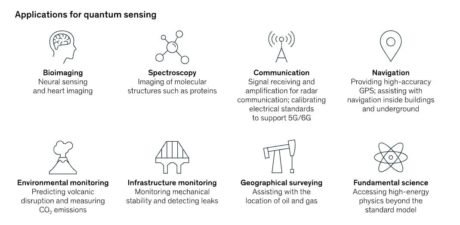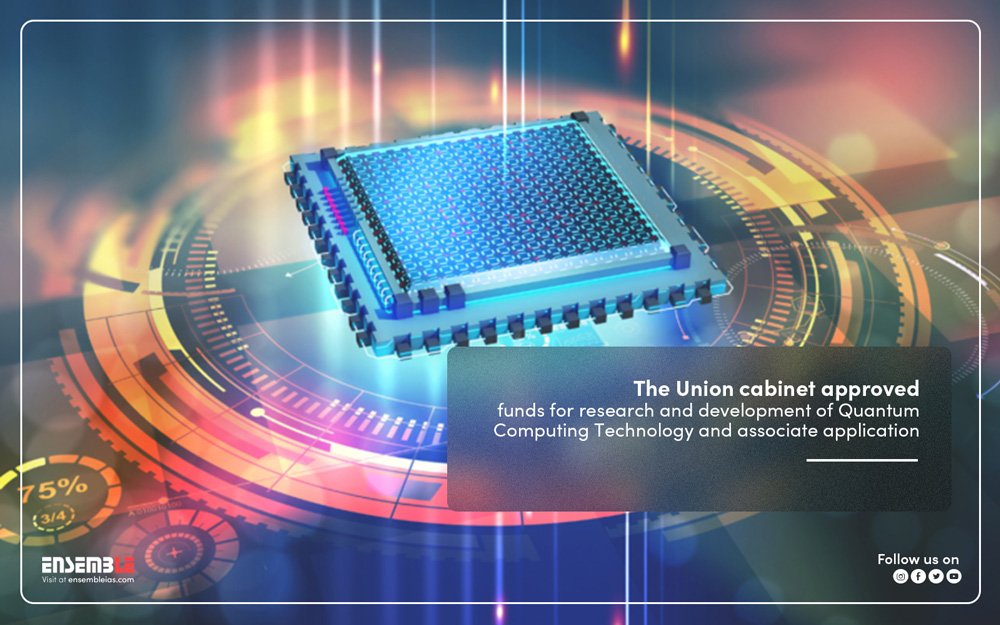Why in news?
– Quantum computers are a work in progress globally and exploit properties of the atom which are only explainable by the principle of quantum mechanics.
– The promise is reliable class of computers that work several times faster than the speediest machine of today and facilitate exponentially secure communication network with wide application.
– Four thematic hub would be set up in top academic and national R&D institute on domains.
– The hub will focus on generation of knowledge through basic and applied results.
– Only 6 countries to do so far in this domain- USA, China, France, Canada, Finland, Austria.
National Quantum Mission-
India’s Quantum Mission have 4 domains.
1. Quantum computing– Quantum computing is basically harnessing the law of quantum mechanics to process information. A conventional computer processes in bits (0s and 1s) while the quantum computers uses qubits. A qubit is a quantum system that particles exist in more than one state (i.e. 1 and 0) at the same time which is known as superposition. The power of quantum computers grow exponentially with more qubits. Quantum computers to perform multiple calculations simultaneously and significantly faster than super computer.
– India’s NQM involves developing intermediate scale quantum computer with 20-50 physical ‘qubits’ in three years, 50-100 physical qubits in five years and 50-1000 physical qubits in eight
years.
2. Quantum communication – Quantum communication is a field of applied quantum physics closely related to quantum information processing and teleportation. In quantum communication, use of photons to transmit qubits between remote places. Photons of light for transmitting data along with optical cables to take on a state of superposition. Quantum communication ensures complete protection by method of QKD (Quantum key distribution)- involves assigning different people a confidential share key for accessing the data. The ultimate goal of quantum communication to establish quantum internet. The transmission of quantum information along short distance (500 metres) is already possible by fibre optics network. For long distance communication (such as across the ocean) rely on satellite.
– India’s NQM includes satellite based secure communication between ground station over a range of 2000 km within India, long distance communication across the countries and inter-city quantum key distribution over 2000 km as well as multi node quantum network with quantum memories.
3. Quantum sensing and metrology– Quantum sensors can measure different physical properties including temperature, magnetic field, rotation of earth with extreme sensitivity.

NQM mission will help develop magnetometers with high sensitivity in atomic systems, atomic clocks for precision timing, communication, and navigation.
4. Quantum materials and device– Quantum materials are solid with exotic physical properties that arise from the interaction of their electron beginning at atomic and subatomic scale where the extraordinary effects of quantum mechanics cause unique and unexpected behaviour. Fabrication of quantum materials such as super conductor, novel semiconductor structures and topological materials
Advantages of NQM
– Technological development, eco-system in the country to globally competitive level.
– Benefits in health, communication, financial, energy sector, space application
– It provides a huge boost to national priorities like Digital India, Make in India, Skill India, Startup India, Self-reliant India, and Sustainable development Goals (SDGs)




